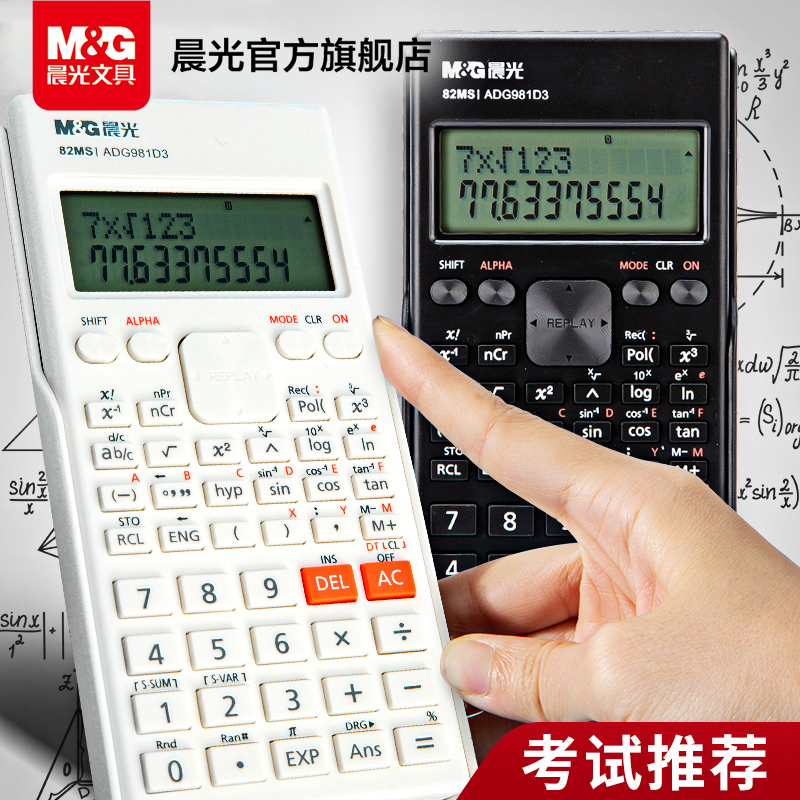高效利用计算器提升学习成绩
女神内控
2024-10-16 15:01:06
0次
高效利用计算器提升学习成绩
在现代教育环境中,计算器已经成为学生学习的重要工具。通过高效利用计算器,学生不仅可以提高学习效率,还能在各种考试中取得更好的成绩。本文将探讨如何高效利用计算器来提升学习成绩。
一、熟悉计算器功能
首先,学生需要熟悉计算器的基本功能和操作方法。了解计算器的各种模式,如普通运算模式、科学计算模式等,并熟悉如何进行进制转换、平方根、百分比计算等常见操作。这将为后续的快速运算和准确解决问题打下基础。
二、提高计算速度和准确性
通过大量练习和使用计算器进行运算,学生可以提高自己的计算速度和准确性。同时,注意避免因粗心导致的错误,如数字输入错误、运算顺序错误等。使用计算器时要认真检查每一个步骤,确保运算结果准确无误。
三、利用计算器进行自主学习
学生可以利用计算器进行自主学习,提高学习效率。例如,在学习数学或物理等学科时,可以通过计算器模拟实际问题场景,进行模拟实验和计算,从而加深对知识的理解和掌握。此外,还可以利用计算器辅助复习和预习,帮助自己更好地掌握所学内容。 四、善用科技资源提高效率 现在有很多与计算器相关的教育软件和应用程序,可以帮助学生更好地学习和理解知识。例如,有些软件可以帮助学生在学习过程中自动记录和整理错题,方便学生进行复习和巩固。此外,还有一些应用程序可以帮助学生快速找到解题方法和思路,提高学习效率。 五、结合实际,灵活运用 在学习过程中,学生应结合实际情况灵活运用计算器。例如,在解决实际问题时,可以根据问题的特点选择合适的计算模式和功能。同时,也要注意培养自己的思维能力和解决问题的能力,而不仅仅是依赖计算器的结果。 高效利用计算器对于提升学习成绩具有重要意义。通过熟悉计算器功能、提高计算速度和准确性、利用计算器进行自主学习、善用科技资源以及结合实际灵活运用等方法,学生可以更好地利用计算器提高学习效率,从而在考试中取得更好的成绩。High-Efficiently Utilizing Calculators to Improve Academic Performance
In the modern educational environment, calculators have become important tools for students to learn. By efficiently utilizing calculators, students can not only improve their learning efficiency but also achieve better grades in various exams. This article will explore how to efficiently use calculators to improve academic performance. Firstly, students need to familiarize themselves with the basic functions and operation methods of the calculator. They should understand various modes of the calculator, such as basic arithmetic mode, scientific calculation mode, and be familiar with common operations such as conversion between number systems, square roots, and percentage calculations. This will lay a foundation for subsequent fast calculations and accurate problem solving. Secondly, students can improve their calculation speed and accuracy through extensive practice and using the calculator for calculations. At the same time, they should avoid mistakes caused by carelessness, such as incorrect input of numbers or wrong calculation order. When using the calculator, they should carefully check each step to ensure accurate results. Thirdly, students can use the calculator for independent learning to improve learning efficiency. For example, when studying math or physics, they can use the calculator to simulate actual problem scenarios and perform simulated experiments and calculations to deepen their understanding and mastery of knowledge. Additionally, students can use the calculator to assist in review and preview to better grasp the content they are learning. Fourthly, students should make good use of technological resources to improve efficiency. There are many educational software and applications related to calculators that can help students better learn and understand knowledge. For example, some software can automatically record and organize wrong questions during the learning process, making it convenient for students to review and consolidate their knowledge. Additionally, there are applications that can help students quickly find solutions and thinking methods to improve learning efficiency. Finally, students should combine reality and flexibly apply the calculator in their learning process. In solving practical problems, they can choose appropriate calculation modes and functions according to the characteristics of the problem. At the same time, they should also cultivate their thinking ability and problem-solving skills, not just rely on the results of the calculator. In conclusion, efficiently utilizing calculators is crucial for improving academic performance. By familiarizing oneself with calculator functions, improving calculation speed and accuracy, using the calculator for independent learning, making good use of technological resources, and flexibly applying it in practical situations, students can better utilize calculators to improve their learning efficiency and achieve better grades in exams.
上一篇:如何在日常生活中运用计算器
相关内容
热门资讯
计算器故障排查与维修方法
本文介绍了计算器常见故障类型及排查、维修方法。包括显示屏不亮、按键失灵和计算结果不准确等问题的排查和...
校园生活的得力助手:科学计算器...
科学计算器在校园生活中至关重要,能进行数学运算、物理实验模拟和科学计算等。操作简单,可进行基本和高级...
"计算器历史回顾:从简单到智能...
计算器历史回顾:从简单机械到智能化的演变,经历了机械、电子及智能计算器时代,现已成为生活工作不可或缺...
计算器故障排查与维修技巧
本文介绍了计算器常见故障及原因,包括按键失灵、显示不清晰和无法开机等,并提供了相应的排查与维修技巧。...
计算器故障排查与修复指南
摘要:本文介绍计算器常见故障及修复指南,包括电源、外观、按键和计算结果等问题。排查步骤包括电源检查、...
计算器的发展历程与未来趋势
文章摘要:
计算器历经算盘、机械式和电子式发展,至现代已高度智能化和功能丰富。未来趋势包括更智能化...
历史上的计算器:从手算到电子化...
摘要:
本文回顾了计算器从手算到电子化的历史演变,包括手算时代、机械式计算器、电子计算器的诞生以及...
计算器故障排查与维修指南
本文提供了一份详细的计算器故障排查与维修指南,包括常见问题诊断、故障排查步骤、维修与保养及注意事项。...
探索计算器的隐藏功能与技巧
本文介绍了计算器的多种隐藏功能和技巧,包括基本型、智能手机及其他类型计算器的特性和使用技巧。掌握这些...
在线计算器:便捷的数字工具
在线计算器是便捷、准确的数字工具,可快速完成多种计算,具有便捷性、准确性、多功能、实时反馈和易操作性...



